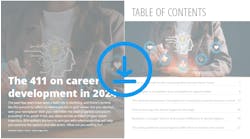A Peer-Reviewed Publication Written by Kandice Swarthout-Roan, RDH, BS & Priya Singhvi, MS, LPC-I, LMFT-A
Abstract
The relationship between a dental professional and the patient is the heart of what keeps the practice thriving and patients returning. Most patients trust the staff members and establish a "dental home" in which they feel cared for and safe. For some people, a history of personal trauma, anxiety, or substance use can paralyze them during a dental appointment. The fear of a dental appointment or professional may be so overwhelming, a patient may behave in an exaggerated manner in the chair or avoid going to the dentist altogether. Awareness of potential stressors that provoke these behaviors, including the neurobiological responses to trauma, can help dental professionals provide optimum service with empathy and compassion.
Educational Objectives:
At the conclusion of this educational activity participants will be able to:
1. Describe the reactions of patients who have dental fear due to past non-dental related trauma.
2. Explain biological and physiological effects of trauma in the human brain.
3. Associate psychological symptoms of trauma with dental anxiety.
4. Identify practical applications for dental professionals to alleviate dental fear.
Please click here to view the program in its entirety.
Past RDH Issues






